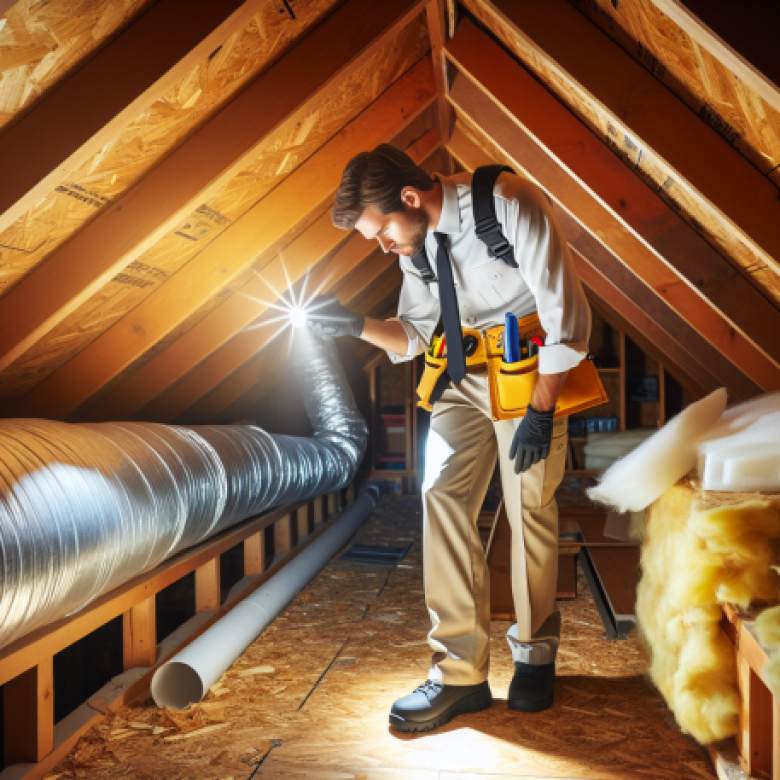Understanding the importance of indoor air quality and its impact on health and well-being is crucial in maintaining a safe and comfortable living or working environment. At Projekt Property Restoration, we have over 16 years of experience in property restoration, including addressing issues related to indoor air quality. Poor air quality can lead to a variety of health problems, from minor irritations like allergies and asthma to more serious conditions like chronic respiratory diseases. It can also significantly affect your overall well-being, causing headaches, fatigue, and long-term discomfort.
Our team of experts is equipped with state-of-the-art equipment and extensive knowledge to assess and improve your indoor air quality. We offer professional mold assessments and remediation services, ensuring your indoor environment is free from harmful pollutants. We also provide water and fire damage restoration, biohazard clean-up, and reconstruction services, all of which can significantly impact indoor air quality.
At Projekt Property Restoration, we are committed to restoring your property to its original state, ensuring a healthy and safe environment for you and your loved ones. Our focus is not just on restoring properties, but also on improving the quality of life for our clients. With our 24/7 availability, competitive pricing, and free project estimates, we strive to provide the best service possible.
Remember, your health and well-being are directly linked to the quality of the air you breathe indoors. Trust us to help you maintain a healthy indoor environment. Contact us today for a free quote and let us help you breathe easier.
Understanding the Connection Between Indoor Air Quality and Health
Indoor air quality is a critical aspect of our living environment that directly impacts our health and well-being. The air we breathe indoors can be filled with various pollutants, including dust, mold, chemicals, and other harmful substances. These pollutants can have a significant impact on our health, leading to various health issues ranging from minor irritations to severe illnesses.
The U.S. Environmental Protection Agency (EPA) states that indoor air can be two to five times more polluted than outdoor air. This fact underscores the importance of maintaining good indoor air quality in our homes, workplaces, and other indoor environments.
One of the most common pollutants found indoors is mold. Mold can grow in damp and humid conditions, and its spores can be easily inhaled, leading to various health issues. According to the Centers for Disease Control and Prevention (CDC), exposure to mold can cause symptoms such as nasal stuffiness, throat irritation, coughing, wheezing, and eye or skin irritation. In some cases, it can also lead to more severe reactions, especially in people with mold allergies or compromised immune systems.
To prevent mold growth and improve indoor air quality, it’s essential to control moisture levels in your home. This can be achieved through proper ventilation, dehumidification, and prompt repair of any water damage. At Projekt Restoration, we offer professional dehumidification services to help you maintain a healthy indoor environment.
Another common indoor air pollutant is volatile organic compounds (VOCs). These are chemicals that are released into the air from various sources, including cleaning products, paints, adhesives, and even some types of furniture. Exposure to high levels of VOCs can lead to symptoms such as headaches, dizziness, and irritation of the eyes, nose, and throat. In some cases, it can also cause damage to the liver, kidneys, and central nervous system.
To reduce your exposure to VOCs, it’s important to choose low-VOC or VOC-free products whenever possible. Additionally, ensure that your home is well-ventilated, especially when using products that emit VOCs.
Indoor air quality can also be affected by dust and other allergens. These can trigger allergic reactions and asthma attacks in sensitive individuals. Regular cleaning and dusting can help to reduce the levels of these allergens in your home.
At Projekt Restoration, we offer content cleaning services to help you keep your home clean and free from allergens.
In conclusion, indoor air quality plays a crucial role in our health and well-being. By understanding the connection between indoor air quality and health, we can take proactive steps to improve the air we breathe indoors and protect our health. Whether it’s through regular cleaning, controlling moisture levels, or reducing our exposure to harmful chemicals, every step we take towards improving indoor air quality can make a significant difference to our health and well-being.
For more information on how to improve your indoor air quality and protect your health, feel free to contact us at Projekt Restoration. Our team of experts is always ready to assist you with your indoor air quality needs.
The Influence of Indoor Air Quality on Personal Well-being
Indoor air quality is a significant factor that influences personal well-being. It is an aspect of our environment that we often overlook, yet it has a profound impact on our health, comfort, and overall quality of life. The quality of the air we breathe indoors can be affected by various factors, including pollutants, allergens, humidity levels, and ventilation.
Pollutants such as dust, smoke, pet dander, mold spores, and chemical fumes can significantly degrade indoor air quality. These pollutants can cause a range of health issues, from minor irritations like allergies and asthma to more severe conditions like chronic respiratory diseases and even lung cancer. For instance, mold, a common indoor pollutant, can cause a variety of health problems. If you suspect a mold issue in your home, consider reaching out to a professional mold removal service like Cooper City Mold Removal or Davie Mold Removal for assistance.
Allergens such as dust mites, pet dander, and pollen can also significantly impact indoor air quality. These allergens can trigger allergic reactions, causing symptoms like sneezing, coughing, itchy eyes, and even asthma attacks. Regular cleaning and proper ventilation can help reduce the concentration of these allergens in your indoor air.
Humidity levels also play a crucial role in indoor air quality. High humidity can promote the growth of mold and dust mites, while low humidity can cause dry skin and respiratory issues. Maintaining an optimal humidity level in your home can improve your comfort and health. If you’re struggling with high humidity levels, consider using a dehumidifier or reaching out to a professional service like Dehumidification for assistance.
Ventilation is another critical factor in maintaining good indoor air quality. Proper ventilation helps remove pollutants and allergens from your indoor air, improving its quality and your health. It also helps control humidity levels, preventing mold growth and other issues. If your home lacks proper ventilation, consider investing in a good ventilation system or consulting with a professional service like Consulting for advice.
In addition to these factors, indoor air quality can also be affected by activities like smoking, using chemical cleaning products, and even cooking. These activities can release pollutants into your indoor air, degrading its quality and impacting your health. Therefore, it’s essential to be mindful of these activities and take steps to minimize their impact on your indoor air quality.
In conclusion, indoor air quality significantly influences personal well-being. It affects our health, comfort, and overall quality of life. By understanding the factors that affect indoor air quality and taking steps to improve it, we can enhance our well-being and live healthier, more comfortable lives. Whether it’s reducing pollutants, controlling humidity, improving ventilation, or being mindful of our activities, every step we take towards improving indoor air quality is a step towards better health and well-being.
In conclusion, the quality of indoor air plays a pivotal role in our overall health and well-being. It is an often overlooked factor that can significantly impact our physical health, mental state, and productivity levels. Poor indoor air quality can lead to a range of health issues, from minor irritations like allergies to severe conditions like respiratory diseases. Therefore, it is crucial to take proactive measures to improve indoor air quality, such as regular cleaning, proper ventilation, and use of air purifiers. By prioritizing the quality of the air we breathe indoors, we can create healthier and more comfortable living and working environments, ultimately enhancing our quality of life.




